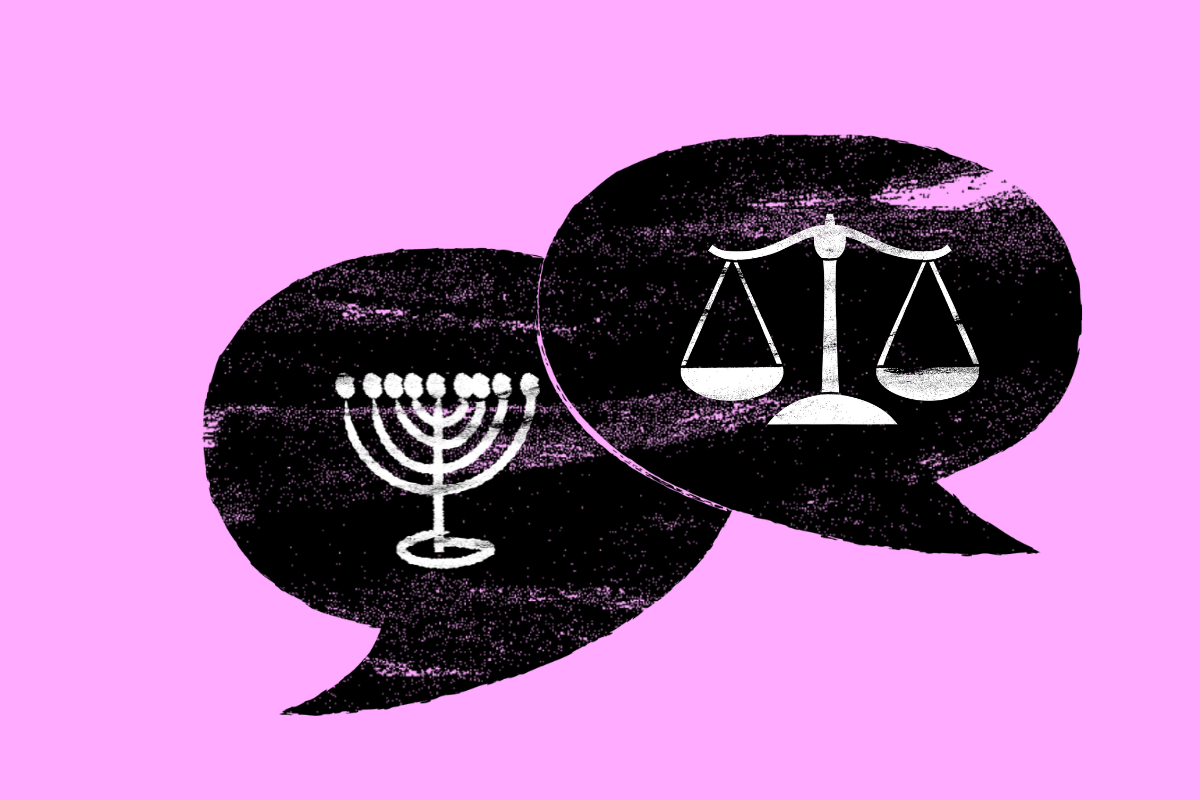Published: 18 March 2024
Last updated: 21 March 2024
What is Shabbat Club? Well, the first rule of Shabbat Club is that you talk as much as possible about Shabbat Club to find the people who need it the most.
Who are those people? They’re people like me. People who are culturally and tribally Jewish, but for a multitude of reasons have become disconnected or isolated from the broader Jewish community, whatever that is. These are people who consider themselves to be progressive in their politics and have resided, until now reasonably comfortably, on the left-hand side of the political spectrum.
These are people disgusted by the far-right, extremist government of Benjamin Netanyahu and distressed by the ongoing disenfranchisement and erasure of Palestinians, while also horrified at the barbarity of what took place on October 7.
Those of us who fit into this camp often feel like we are not adequately represented by conservative Jewish organisations and voices, who are often speaking the loudest and from the largest platform. But mainstream leftist spaces have equally left us wounded.
Many of us have spent our lives finding comfort and camaraderie on the left. For years we’ve fought for self-determination for minority groups, for civil rights for all people, for the destruction of binary thinking and binaries around identity. Because these are values that we believe in and for which we want to fight.
And yet, in this space we thought was our political home, we find ourselves swimming in a putrid sea of antisemitism, hatred and ostracism that we simply didn’t see coming. All the rules of engagement we were told to live by, we now see being broken by people we used to consider our friends or peers.
We feel not adequately represented by conservative Jewish organisations but leftist spaces have equally left us wounded.
None of this is to say that our journey is even remotely comparable to the unfathomable suffering of Palestinian civilians who are dying in their tens of thousands in bombings or from hunger or a lack of medical care. Or the innocent civilians who were raped and murdered on October 7. Or the people who have spent over 100 days held hostage by terrorists. Or indeed any of the families of any of these people on all sides of this brutal conflict.
In the months since October, I’ve been invited to numerous Shabbat dinners with people I had never previously engaged with as Jews – friends, colleagues, peers and acquaintances. I’ve broken bread with total strangers and found comfort in our shared culture and experience. “Shabbat Club” is what I’ve come to call these impromptu get-togethers of groups of young, progressive Jews across this country, looking for comfort, camaraderie, kindness and understanding.
I’ve accepted as many of these invitations as I can, trying to forge new friendships as existing friendships fall away, while I watch people I loved engaging in the worst kind of antisemitic, blood libel propaganda. Showing they are unable to hold more than one truth. Demonstrating their empathy and humanity is limited and nuance is not to their liking. I need to spend time with people who feel as isolated and scared as I do.
We also take time to laugh, to joke, to lift each other up as best we can amidst what feels like an onslaught of violence.
Shabbat Club is not a formal arrangement, but it’s popping up in almost every major city, as well as overseas. It doesn’t have a membership card or instructions or rules of engagement. And yet I see it happening in a totally organic way, as Jews all over Australia retreat into community, creating new micro-communities of similarly minded peers.
In attending Shabbat Club, I have found spaces that are progressive, kind, empathetic and totally inclusive of different lifestyles, politics and perspectives. I’ve watched men light the candles, I’ve sat at tables with trans and non-binary Jews, nuclear families, same-sex families, people of colour, people who’ve converted.
We are all joined together as part of the Jewish diasporic family, breaking challah, fighting over which condiment is optimal for which dish (sugar on latkes, no ketchup with gehakte leber and no, I will not be entering into any correspondence on this issue).
At every Shabbat Club dinner I have attended in the past four months, what I have seen is overwhelming grief for what’s happening to our Palestinian brothers and sisters, and a desperation for the hostages to come home. So much pain. So much sadness.
And a deep and enduring anger at the Netanyahu government. One, it must be said, none of us voted for, not only because we are members of the Jewish diaspora and don’t get a vote, but because he represents the worst of what any pandering, hawkish, right-wing government can offer.
We also take time at Shabbat club to laugh, to joke, to lift each other up as best we can amidst what feels like an onslaught of violence and violent rhetoric all around us.
In the past four months, I’ve read influencer posts about the “blood lust” of Zionist women, about how Zionist philanthropists “wash their money” in the creative arts. I’ve also been added to a spreadsheet of Jews encouraging people to share my contact details and social media accounts and harass me. The spreadsheet was supposedly made up of members of a WhatsApp group… that I wasn’t in.
I’ve been lectured by people who aren’t Jewish – who on other issues repeatedly emphasise the importance of centring the voices most affected or those with lived experience – about what Zionism is and what antisemitism isn’t, without even a hint of irony or self-reflection.
It is true – without qualification – that criticism of Israel is not antisemitism. But while the often-repeated refrain that anti-Zionism isn’t antisemitism may also be true in many respects, it is undeniably more fraught.
No two Jews that I speak to have the same definition of Zionism. Zionists, and indeed Jews, are not homogenous and the meaning of the word “Zionism” has changed over time and among different groups. None of that matters when the word is weaponised for maximum effect and used as a vicious proxy for the word “Jew”.
I have experienced antisemitism in every single aspect of my life, perhaps because I was operating in the mainstream and not within the claustrophobic safety of the Australian Jewish community.
Since I walked into an Amnesty International office as a volunteer at 19, I have maintained that Israel should be required to adhere to the same humanitarian expectations as every other country in the world. And like many other countries, it has fallen short, and it must be held to account.
Mistakes made during the founding of Israel must be addressed. There must be truth-telling and reparations so we can move forward. In the same way that even a basic knowledge of history shows the Jews have ties to Israel going back to the dawn of history, the tragedy and pain of the Nakba inflicted on Palestinian people, and the damage it has done to the future of Jews, cannot be understated.
But when key figures in a movement supposedly built on the idea of recognising the humanity of all, no matter their religion, their nationality, the colour of anyone’s skin, break all their own rules, it’s incredibly difficult for us to stand united, even though we agree with so many of its fundamental underpinnings.
When an elected politician from a political party like the Greens can draw upon the worst of the Protocols of the Elders of Zion and cartoons made popular in Nazi Germany, and the party can simply let it slide, where does that leave us? The Greens’ slogan is “we care about your future”. Whose future? Everyone except Jews? So, where do we find safety?
Well, for now, I find it at Shabbat Club.





Comments4
Michele Alberth2 April at 09:18 pm
So we’ll said, Isabella, and true not only for the young ones!
Barbara Weis23 March at 01:26 pm
Great Article Isabelle!
Jessica Lipnack22 March at 04:50 pm
Brilliant and precisely the way I feel. Thank you. By accident, three Jewish friends are coming to dinner tonight so we’ll be part of the SDS—Shabbat Dinner Sisterhood (not the SDS of yore that our old Anti-Vietnam activists remember).
Jane Wilkinson22 March at 04:36 pm
You’ve expressed exactly my dilemma and how I’ve been feeling these last few months. Thank you so much for the article